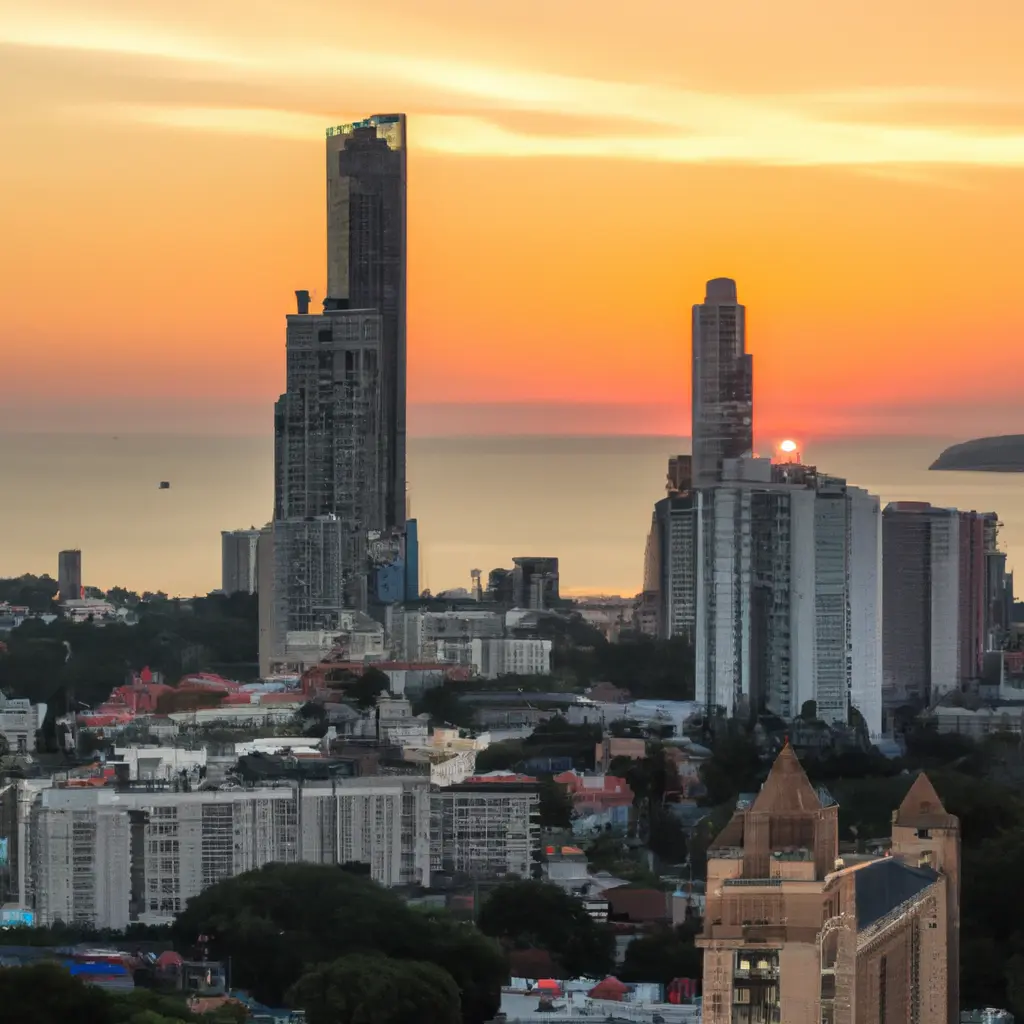Thailand's real estate boom: the impact of Chinese investment


The boom in Chinese investment has driven up real estate prices. Does Thailand's new government have a plan to manage the fallout?
The city of Pattaya in Chonburi province, Thailand, is a destination for foreign real estate investors.
The real estate market in Thailand has grown significantly recently, which can be attributed to the policies of the previous government. Although new Prime Minister Sretta Tavisin has only been in office for a month, he has been actively engaged with China, especially in the areas of tourism, trade and investment. Attracting private Chinese investment in Thailand's real estate sector is important for the development of bilateral relations. However, this may not solve the problem of affordable housing for Thai citizens. These investments, while economically important, are only one aspect of the broader economic relationship between the two countries. Addressing affordable housing and other socio-economic challenges may require separate policy solutions beyond foreign investment.
A general picture of the real estate market
To fully understand the current situation, it is important to consider statistics from the Real Estate Information Center (REIC) and the Government Housing Bank (GH Bank). In the first half of 2023, the number of apartment sales to foreign customers in Thailand rose 14.7 percent year-on-year, with foreign buyers now accounting for 10.8 percent of the sector.
The scenic coastal province of Chonburi leads the number of sales to foreign buyers of apartments with 43.4 percent, not far behind Bangkok with 37.7 percent. Chinese buyers dominate, coming in at 47.0 percent of residential units sold to foreign buyers and 48.3 percent of total transactions. This underscores Thailand's attractiveness to Chinese investors. Russians also play a significant role, coming in at 9.6 percent of apartments sold and 7.3 percent of total transactions. While these changes may not directly affect broader diplomatic relations, they promote economic interdependence and cooperation, which could create more opportunities for trade and investment between Thailand and China.
Why the China focus?
The significant influx of Chinese money into Thailand's real estate sector reflects the government's long-term goal of strengthening economic ties with China. This is in line with the past practice of prioritizing Chinese investment for its ability to create jobs, improve infrastructure and develop tourism, which greatly contributes to Thailand's economic growth and stability. However, the housing needs of Thai citizens must also be addressed.
Thailand is currently facing a serious housing crisis as real estate prices exceed income growth, pushing many people into unfavorable housing conditions. This crisis could be exacerbated by increased foreign investment, especially from China, which has already raised real estate prices and exacerbated the shortage of affordable housing.
The impact of Chinese private investors
The surge of Chinese private investors in Thailand's real estate market has raised significant concerns among Thai property buyers due to the obvious impact on property prices.
One of the most notable impacts has been a significant increase in property values, especially in prime urban and scenic areas. Chinese investors have shown a strong preference for luxury real estate in popular locations such as Bangkok and coastal provinces including Chonburi. Their demand for luxury apartments, villas and prestige housing has led to record levels of real estate prices in these regions. This increase in demand has made it more difficult for local buyers to access homes in previously affordable neighborhoods.
In addition, the impact of foreign and Chinese investment extends not only to directly purchased properties, but also to adjacent neighborhoods where property prices are also on the rise. The concentration of Chinese investors in the luxury real estate market has changed the overall picture of the real estate market. Many real estate developers have shifted their focus to meeting Chinese demand, leading to a shortage of affordable housing. This makes it more difficult for middle-class and low-income Thai buyers to find suitable properties to buy.
Transparency and strict regulation play an important role. Enforcement of stricter real estate ownership rules by foreigners can help control the impact of foreign investment on real estate prices while maintaining fairness. Social housing programs for low-income citizens should be initiated to fill the housing gap and improve the quality of life of Thais. At the same time, policies that promote local economic development and citizens' purchasing power in the real estate market can create a more sustainable and self-sustaining economy, benefiting both locals and foreign investors.
Thailand's growing real estate market, fueled by Chinese investment, offers economic benefits and strengthens international ties. However, it also contributes to a shortage of affordable housing for local residents. Balancing economic growth and social well-being is a major challenge for Thailand. The government must take decisive action to address the housing crisis by prioritizing policies that will ensure inclusivity and well-being for the entire population. This is critical to maintaining Thailand's attractiveness to foreign investment and ensuring the country's long-term prosperity.
We will find property in Thailand for you
- 🔸 Reliable new buildings and ready-made apartments
- 🔸 Without commissions and intermediaries
- 🔸 Online display and remote transaction
Our managers will help you choose a property
Liliya
International Real Estate Consultant

Subscribe to the newsletter from Hatamatata.com!
Subscribe to the newsletter from Hatamatata.com!
Popular Posts
We will find property in Thailand for you
- 🔸 Reliable new buildings and ready-made apartments
- 🔸 Without commissions and intermediaries
- 🔸 Online display and remote transaction
Our managers will help you choose a property
Liliya
International Real Estate Consultant

Subscribe to the newsletter from Hatamatata.com!
Subscribe to the newsletter from Hatamatata.com!
I agree to the processing of personal data and confidentiality rules of Hatamatata
Need advice on your situation?
Get a free consultation on purchasing real estate overseas. We’ll discuss your goals, suggest the best strategies and countries, and explain how to complete the purchase step by step. You’ll get clear answers to all your questions about buying, investing, and relocating abroad.


Irina Nikolaeva
Sales Director, HataMatata









